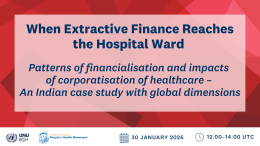This policy brief analyses the work of the Finance Against Slavery and Trafficking (FAST) project’s Survivor Inclusion Initiative (SII). It distills four years of experience into insights for those considering how to develop financial inclusion interventions for survivors and other communities vulnerable to human trafficking and modern slavery.
SII has had significant success as a pilot programme, demonstrating impact for financial institutions (FIs), survivor support organizations (SSOs), and most importantly, the survivors they serve. Incubated by FAST since 2019, SII has been integrated into the operational frameworks of FIs and SSOs. This success has positioned SII as a sustainable solution for survivors of modern slavery to access financial services.
Survivors often face structural inequalities related to poverty, race, class, or gender, leading to uncertain incomes that hinder their ability to open and sustain bank accounts, save, and access financial services. Additionally, survivors, who come from diverse backgrounds and experiences, may encounter language barriers, isolation, and anxieties when dealing with authorities, especially if they lack official documentation.
Many survivors of modern slavery may have experienced FIs as sites of their exploitation by traffickers, such as having been forced to open accounts for illegal activity or make deposits into accounts under their name, but to which they have no actual access. These disempowering experiences, combined with anxiety arising from having to explain their history to banking officers, can increase survivor distrust toward these institutions.
FAST developed the SII to address these barriers and close gaps for survivors to access financial services. As one of the first activities launched within FAST, the successes of SII and the challenges it has faced offer useful lessons for both financial service providers and frontline response organizations on how to directly mitigate vulnerability through financial access for survivor clients.
Read ‘Lessons from the Survivor Inclusion Initiative’ here.
Suggested citation: Alice Eckstein, Maha Khan, Jill Huinder and Leona Vaughn. Lessons from the Survivor Inclusion Initiative : UNU-CPR, 2024.




